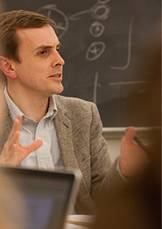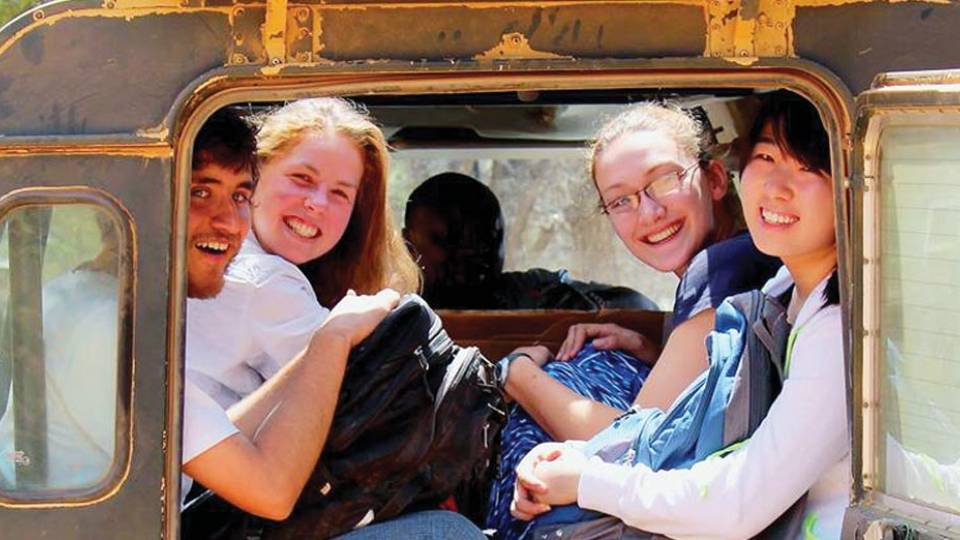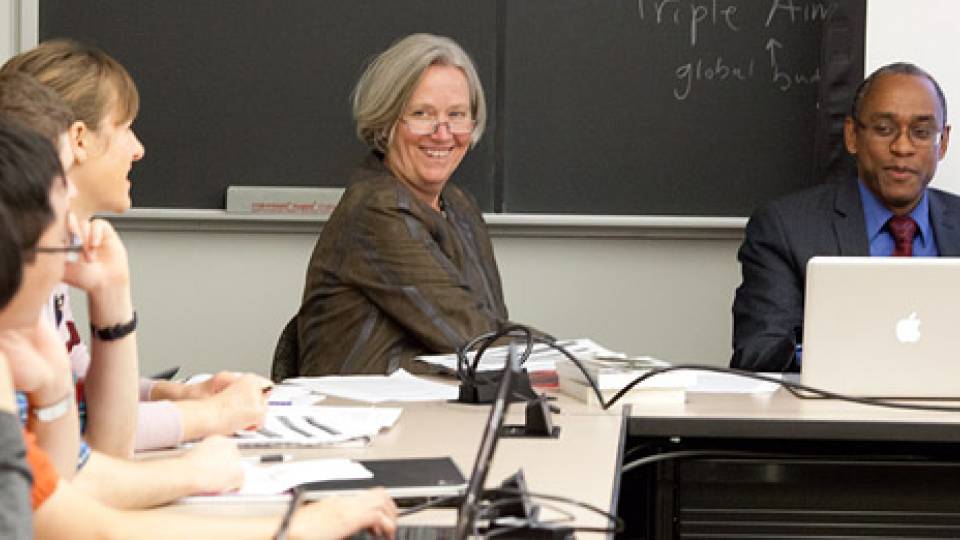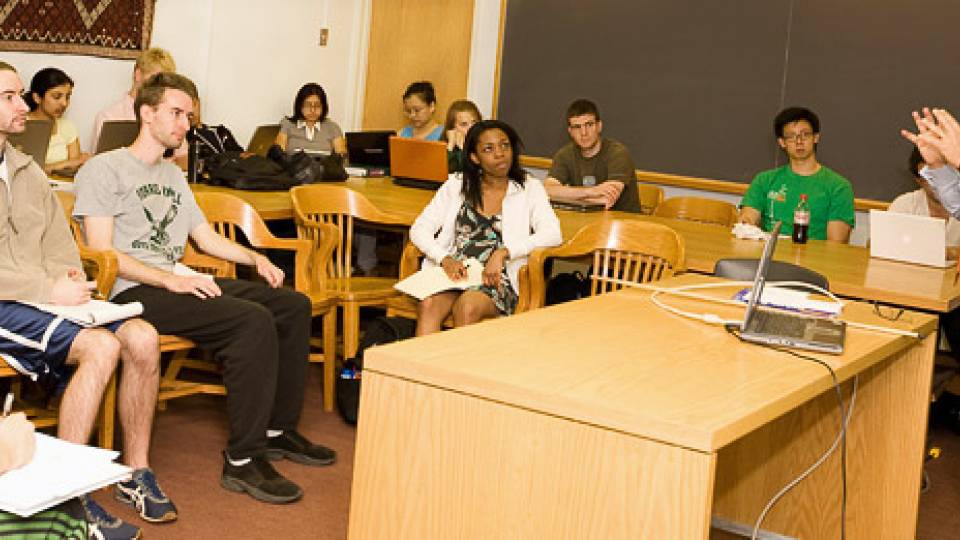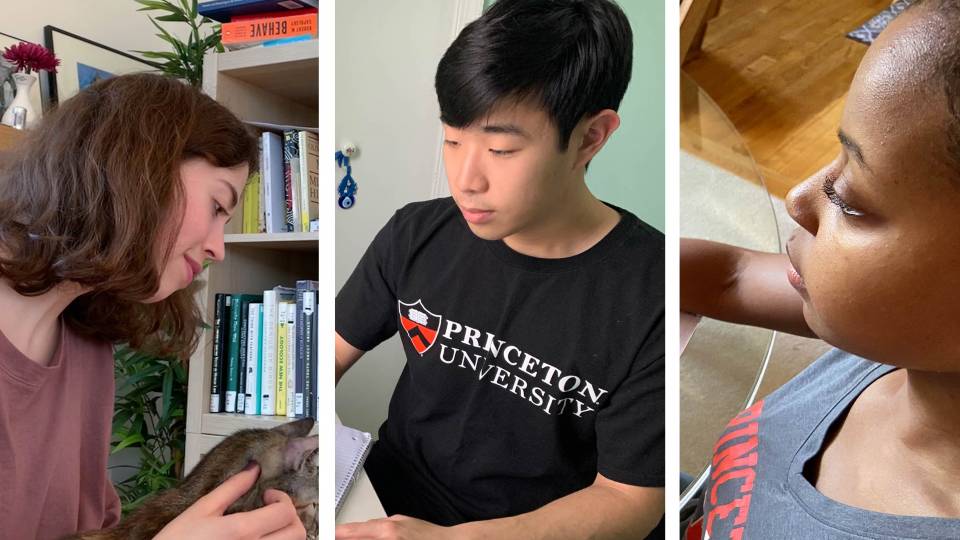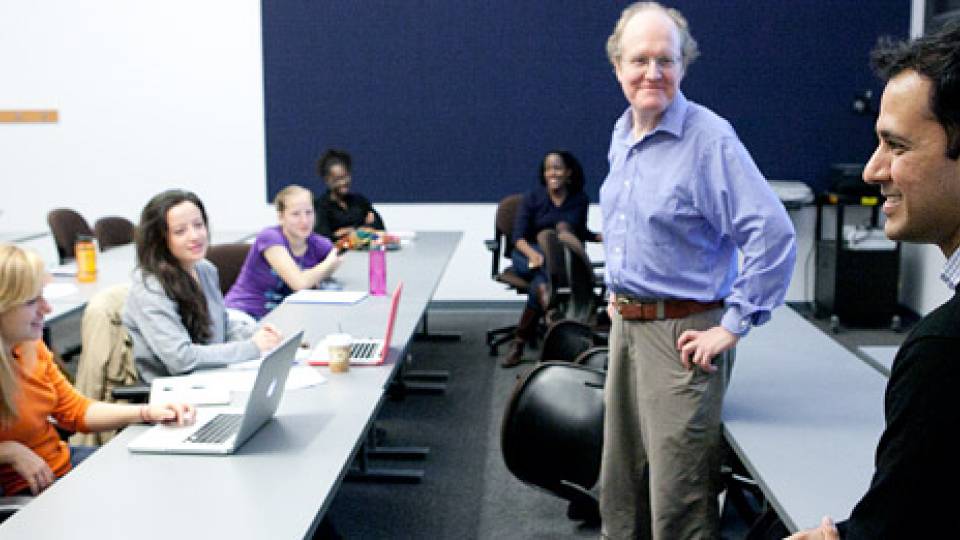Class: "Ethics and Public Health"
Instructor: Jason Schwartz is the Harold T. Shapiro Postdoctoral Research Associate in Bioethics and a lecturer in the University Center for Human Values. Schwartz, a member of Princeton's Class of 2003, focuses his research on the role values and value judgments play in decision-making in public health and medicine. As an undergraduate, Schwartz concentrated in classics, pursued a pre-med course of study and served for three years on the Undergraduate Honor Committee. "In different ways all three of those interests coalesced in my graduate work and, more recently, led me to focus on the role of ethics and values and humanistic approaches to understanding contemporary health and medicine," he said. Schwartz spent 2010-11 as a research analyst for the Presidential Commission for the Study of Bioethical Issues. He earned his Ph.D. in 2012 from the University of Pennsylvania in the history and sociology of science.
Description: The course — being taught for the first time this semester — examines issues at the intersection of ethics, policy and public health, with a focus on the tension between individual rights and the common good in these areas. Students consider the proper role of government in promoting the health of individuals and communities through such topics as mandatory vaccination laws, taxes on soft drinks, tobacco regulation and health-reform efforts.
The class attracts students from a range of academic disciplines, including philosophy, anthropology, engineering, and ecology and evolutionary biology. And during a class session this month, students drew on a diverse set of experiences as well — from work in a Native American health clinic in the United States to research in Sierra Leone in West Africa.
"There's great energy, great investment in the U.S. and around the world in thinking about public health approaches to improving the health of communities and individuals," Schwartz said. "This course gives me the chance to introduce students who have thought about health as a scientific, public policy or philosophical issue to integrate those perspectives and highlight the ways values shape public health decisions and are shaped by them — highlighting the spectrum of ethical considerations that go into how scientists, public health officials and citizens think about public health today."
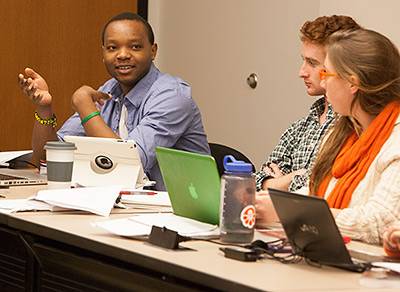
Seniors Teguru Tembo (from left), Raphael Frankfurter and Elizabeth Sajewski discuss vaccines and ethical issues. Tembo said the topic allows him to merge his interests in ethics, health and science.
A focus on vaccines: Schwartz has done extensive research on ethical issues surrounding vaccines, including the controversy about the risks and benefits of a rotavirus vaccine, substance abuse vaccines and vaccine refusal. Discussion during a class session this month touched on those issues and more from a variety of perspectives. Schwartz opened a recent class with a personal example that emphasized the significant role of individual decision-making about vaccines.
"This is a topic I've thought about from a theoretical perspective for a long time," Schwartz said. "But just last night I was sitting in a pediatrician's office with my expectant wife for an orientation session and, of course, one of the topics that came up among the couples sitting there was the question about vaccines.
"Someone asked about the safety of the vaccines, and the physician leading the session said he has given the vaccines to his children and all the physicians in the practice believe wholeheartedly in the importance of following the evidence-based recommendations of the pediatric professional group and the CDC [Centers for Disease Control and Prevention]. We know this is happening all the time in doctors' offices — parental concern, parental confusion about vaccination issues."
Such concerns about the risks — and perceived risks — of childhood vaccines make discussions about vaccine promotion and compulsion ethically rich, Schwartz said, especially given the dangers of vaccine-preventable diseases and the risk that vaccine avoidance can make the population as a whole more susceptible to those diseases.
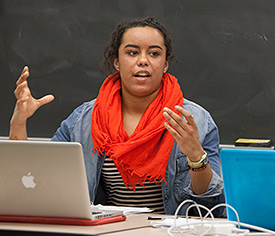
Junior Cecilia Di Caprio said she has benefited from the different perspectives of her classmates, whose areas of study include philosophy, engineering and anthropology.
Students say: Teguru Tembo, a senior concentrating in ecology and evolutionary biology, said he is drawn to the vaccine issue as part of a broader interest in how scientific discovery is portrayed in the media and understood by the public.
"In the scientific community, the vast majority of people accept these three things: the theory of evolution through natural selection; man-made climate change is occurring; and vaccines do not cause autism. However, in the general public, these issues are much more hotly debated," Tembo said. "I am interested in looking at the intersection of science and the media and determining where the disconnect arises. I also look forward to determining the ethical implications of attempting to implement public health interventions when the public is unable or unwilling to accept scientific conclusions. Is coercion justified? Is it paternalistic to make people do something for their own good? Vaccine policy seems like a particularly good topic since it will allow me to realize my goal for this course: merging my interests in ethics, health and science."
Cecilia Di Caprio, a junior concentrating in sociology who is pursuing a certificate in African American studies, said she has benefited from the different perspectives of her classmates. "We have some people from the philosophy department who are able to give fantastic insights into the ethical theories that we base our discussions on," she said. "Some molecular biology majors and engineers give practical accounts of the specific medical and science issues we talk about, and we also have people from the social sciences who provide other points of view when we discuss specific cases in history or hypothetical situations."
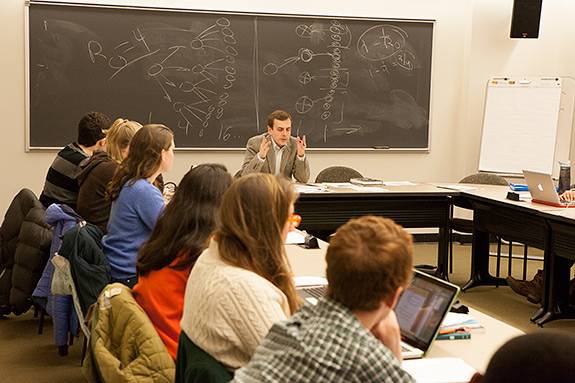
Discussion during a class this month focused on vaccines and how the rights and decisions of individuals can have a broad impact on the health of large populations.
